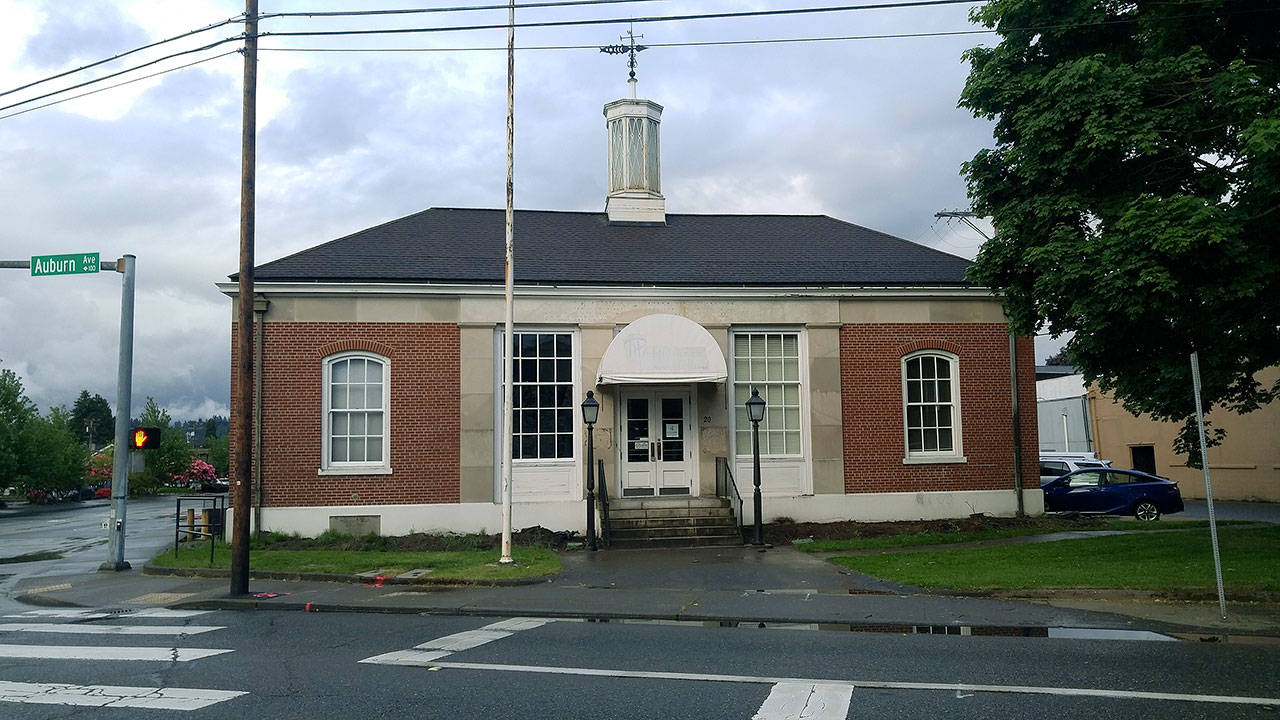Auburn looks to transform its old post office into a vibrant cultural hub of arts programming and the ideal gathering spot for creative place making.
During the recent legislative session, the city worked with 47th Legislative District Rep. Pat Sullivan, D-Covington, to make a $500,000 capital budget request to help it happen.
And got what it asked for – in full.
“We sure did,” said Daryl Faber, director of Auburn Parks, Arts and Recreation. “We’ll be using that money hopefully to complete the upstairs portion of the Arts and Culture Center, which will create gallery space, meeting space, event space and restore it close to its original design. Based on the architectural drawings, we’ll will be close to being able to have the upstairs open next year.
“We want the upstairs to be available for the public to come visit, and have it part of the downtown revitalization in concert with the two new developments that are going in across from City Hall,” Faber added.
The total project cost is closer to $2 to $3 million, Faber noted, so the city will continue to apply for money to work on the downstairs. Excluding the $500,000, the project has raised about $400,000 from other sources, including King County’s 4Culture.
The future Auburn Arts and Culture Center was one among a number of asks the city made of lawmakers before the 105-day legislative session got rolling in Olympia. That session ended on April 28, and Inslee has 20 days from the end of the session to review, sign or veto bills.
Here is a slice of the city’s scorecard to date:
For its part, Auburn had stood to lose up to $4 million a year if the streamlined sales tax mitigation fund were to sunset by the end of 2019, but lawmakers passed a bill to ensure nothing like that would happen to Auburn and other communities.
If Inslee signs, the state operating budget would include $16.4 million over the biennium to continue the mitigation of those cities negatively affected by the streamlined sales-and-use-tax agreement.
Auburn has also argued for a time that the state’s laws regarding condominium construction create significant disincentives and impediments for builders to launch new condominium construction projects, and because of those laws, the city says, new condominium construction has all but ground to a complete halt.
What the city wanted was for the state to address these shortcomings in state law, and lawmakers passed legislation that changes the implied warranties for construction of a condominium under the Washington Uniform Common Interest Ownership Act.
What that means is that should the law goes into effect on July 28, gone would be the requirement that the condominium be constructed in accordance with all laws. Instead, it would require that the building be constructed in accordance with applicable building codes.
The changes would likewise require that the purchaser prove that an alleged breach of warranty has or will cause physical damage, materially impair the performance of some function, or present an unreasonable safety risk.
Auburn also supported strengthening the Public Records Act in response to changing technology and burdensome requests so government entities can continue to provide open and transparent services.
The new rules would remove the June 30, 2020, expiration date for the grant program, the Attorney General’s consultation program, and the requirement that the Division of Archives and Records Management offer and provide consultation and training services for local agencies on improving retention practices. Likewise, it would modify the metrics that certain agencies are required to report to the Joint Legislative Audit and Review Committee.
Finally, the city asked Olympia to fund additional slots at the Basic Law Enforcement Academy so agencies could fill vacancies in a more timely manner. The city had found it increasingly difficult to fill officer vacancies because of the low number of spots available at the academy, and that indeed, several months often passed before a spot opened.
If Inslee signs, the upshot would provide $4.5 million over the biennium to fund 19 BLEA classes each year, two of which would have to be held in Spokane.


